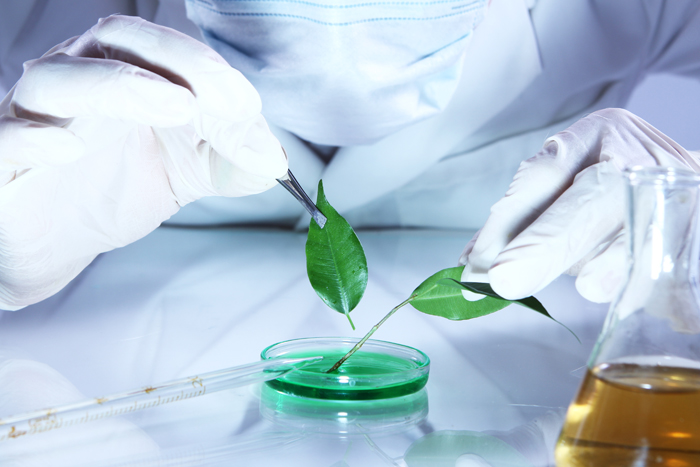Biochemists: the Hackers of Science
Pop quiz! Have you ever:
– Used a special shampoo to make your hair curlier, stronger or softer?
– Bought a diet soda or energy drink?
– Used a special cleaner to get grass stains out of a sports uniform?
If so, you should be thanking a biochemist!
Lifehackers—Literally!
Biochemists are like the hackers of the science world. Just like the (good guy) computer hackers who help companies fix their security, biochemists find the weak spots in living systems and build clever solutions to patch them up. They investigate where systems tend to break down in order to stop the (bad guy) hackers like viruses and mutations that want to exploit those flaws. And they invent really cool things that make everyday life better.
Think about the body like a computer. Most people have a basic understanding of computers as a whole and how to use them. They know how to create a document and browse the internet, and maybe do some basic upgrades. Biologists are like general computer users – they look at organisms as a whole and how all the organs work together.
Chemists, on the other hand, are like the hard-core techies who build electronics and design software from scratch just because they can. They focus on the basic building blocks of systems and putting them together in unique and beautiful ways.
Biochemists are the bridge between these two. They study more than just the components—they look at the flow of information and the way everything comes together into a larger, living ecosystem. Then, they use that knowledge to make systems faster, more streamlined, or safer for the people who rely on them.
Hacking the System
Unlike biologists, who study whole organisms, and chemists, who study inanimate compounds, biochemists study the way chemical compounds interact with living beings. They learn the nitty-gritty of physical processes, like how oxygen molecules go from the lungs into individual cells and what they do there, or how food is broken down into energy.
But biochemists also do much more. After getting a solid foundation in the molecules of life—lipids (fats), proteins (made up of amino acids), carbohydrates, and things like enzymes—they get to figure out ways to solve problems using that knowledge. They’re always looking for ways to make things better, from food additives to sports supplements.
One biochemist might learn all about an enzyme that helps people digest their food, and then figure out how to replicate that enzyme for people who don’t produce it, helping them live a normal life. Another might study the way skin reacts to certain chemicals, and figure out ways to neutralize the damage. Yet another might track down problematic chemicals in our environment and demonstrate the ways they impact people and animals in order to find safer replacements.
What will I learn?

If you study biochemistry, you’ll cover a few general topics:
– “The chemicals of life:” proteins (including DNA structure), lipids, and carbohydrates. These are like basic electronic components. You’ll need them to understand how physical systems work.
– Kinetics: this area of study governs the way molecules interact, especially through things like osmosis. It requires some math, but it helps scientist understand how molecules flow from one side of a cell membrane to the other, or how enzymes can speed up reactions.
– Enzymes: these are large molecules that use very specific shapes and connection points to boost (“catalyze”) specific reactions. Have you ever seen pet cleaner or laundry detergent that uses enzymes to break down stains? Now you’ll learn how they work, and all the other amazing things that enzymes do.
– Metabolic processes: Ever wondered how, exactly, oxygen gets from your lungs to your cells? Or how carbohydrates are broken down to provide a fuel source for hungry muscles? You’ll learn all about the cycles that govern these products, from how oxygen hitches a ride on red blood cells (hint: you need iron in your diet to make this work) to how glucose provides fuel for your muscles during exercise.
What can I do with it?
Biochemistry is a great starting point for a lot of different jobs. In the same way that big companies sometimes hire hackers to solve computer problems, food companies, oil and gas companies, and even soap companies use biochemists to find new molecules that will make their products unique.
Some biochemists even go on to study genetics, a rapidly-developing area of science and medicine. Others stick to computer modeling, figuring out what important enzymes look like and how they work, while others do fieldwork, exploring the ways different chemicals impact our environment.
Is it for me?
If you’re the kind of person who’s been asking “how does this work?” since you were five—and you’d rather study living organisms than computers or isolated chemicals—biochemistry could be a great field for you to study.
To get an overview of topics, you can always look at a few of the free videos on educator.com. If you decide it’s for you, these lectures are taught by one of the top professors in the US and can help you get a thorough understanding of all the topics you’ll face. If you get stuck, the lectures are also searchable, so you can get all the help you need to pass your courses.
Hacker for Life
All in all, biochemistry is a fascinating field of study with almost endless applications. If you choose a career in biochem, not only will you get to work in a lab on cool products, you’ll know that your creations are changing people’s lives. You might even see a compound you create on store shelves one day—or meet someone whose life was saved by your genetic advances!
Get Biochemistry Help!
[box type=”success” align=”” class=”” width=””]Learning biochemistry can be challenging but Educator.com can help you through it. Check out our Biochemistry course now for instant help.[/box]












































